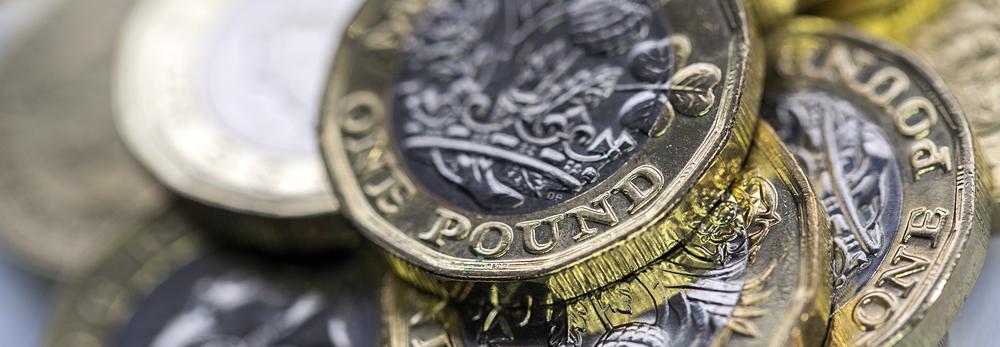The time is 12:30 on Thursday the 12th of December. I tell my colleague to bet on cable, shorting the pound until 20:00 – election day is always jittery. The time comes to 21:50, moments before the exit poll. I tell him to back Sterling with everything he’s got, he doesn’t, and minutes later I was doing my best ‘I told you so’ face. The Conservatives weren’t the only winner of the General Election, the pound won too.
Peaking at 2% up against the dollar, it was hardly a surprising accompaniment to a decisive Tory majority. What was noticeable, though, was that during the session following the election result, FTSE struggled to gain traction.
Likewise, with such strong movement in the pound, the idleness of the FTSE was hardly a shock.
Another factor to consider was our regular suspect, Donald Trump, doing his best to upset the party. While indices were happy to rally on the back of Boris Johnson’s success, the Twittering POTUS took it upon himself to dispel any rumours of trade deal progress.
The Wall Street Journal story on the China Deal is completely wrong, especially their statement on Tariffs. Fake News. They should find a better leaker!
— Donald J. Trump (@realDonaldTrump) 13 December 2019
Speaking on Friday’s market movements, Spreadex Financial Analyst Connor Campbell stated,
“Donald Trump himself couldn’t hurt sentiment this Friday, the markets ignoring his Twittervention to keep climbing higher.”
“The President claimed that Thursday’s Wall Street Journal report – the one stating that a trade deal had been reached in principle, with the US agreeing to rollback some pre-existing tariffs in exchange for China buying up more American agricultural goods – were ‘completely wrong’, labelling it as ‘fake news’.”
“Yet investors didn’t seem to pay attention. The Dow Jones hit a fresh all-time high of 28250 after adding another 150 points, while the DAX and CAC maintained their respective 1%-plus increase.”
“Friday’s real change came from the FTSE. Initially it opened just 0.3% higher, cowed by the sheer strength of the pound’s gains. However, with sterling pulling back oh so slightly – it is still up 1.6% against the dollar and 1.3% against the euro – and the banking and housebuilding sectors seeing some red-hot growth, the UK index was able to jump 1.6%, re-crossing 7400 in the process.”
“All this index growth, however – be it in the US, Eurozone or UK – will quickly come unstuck if Trump is telling the truth. A lack of trade deal or tariff delay would see another $156 billion in Chinese goods smacked with extra charges this Sunday, setting back talks between the superpowers and ending the year on a dour, pessimistic note.”
Elsewhere on Friday, following the election results, Lloyds Banking Group rallied (LON: LLOY), Miton UK MicroCap Trust PLC (LON: MINI) gave shareholders a modest update, Moodys Corporation (NYSE: MCO) gave a steady oil and gas outlook, and Taylor Wimpey (LON: TW) bounced following the Conservative win.
So, the day was largely positive. Going forwards, though, it will be important to see if Boris Johnson can inspire anything beyond than short-term profit maximisation. As reported by the FT, many leading economists spare little hope for long-term investment, innovation and opportunity-creation, but only time will tell.




